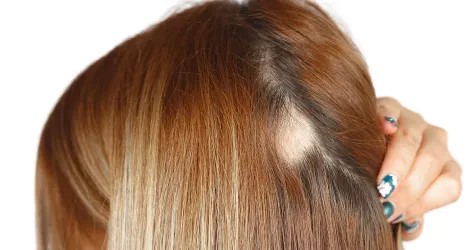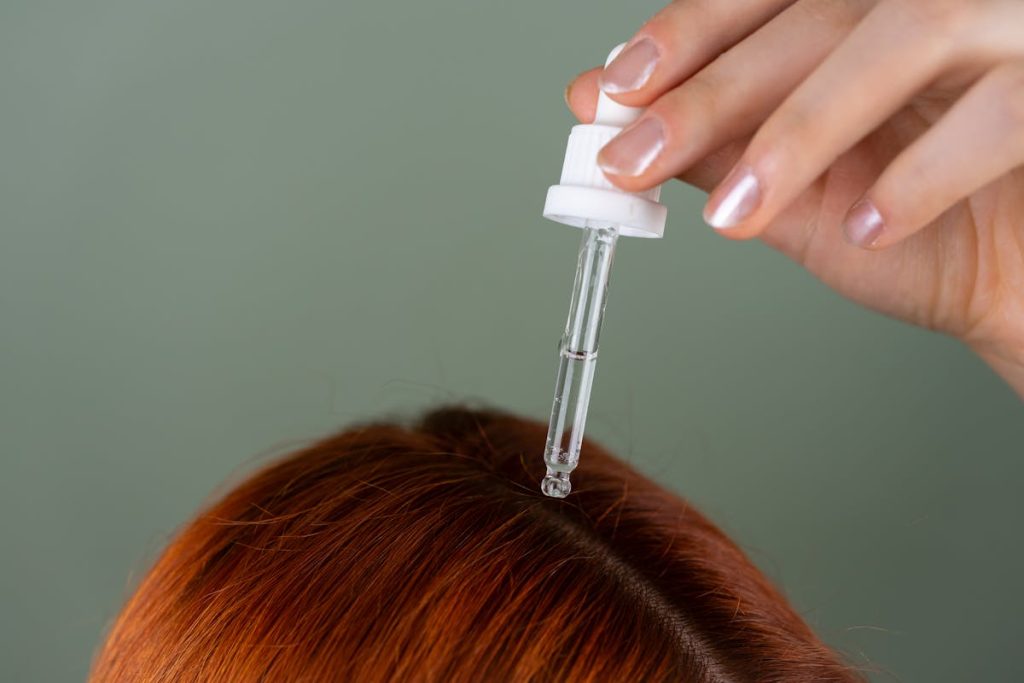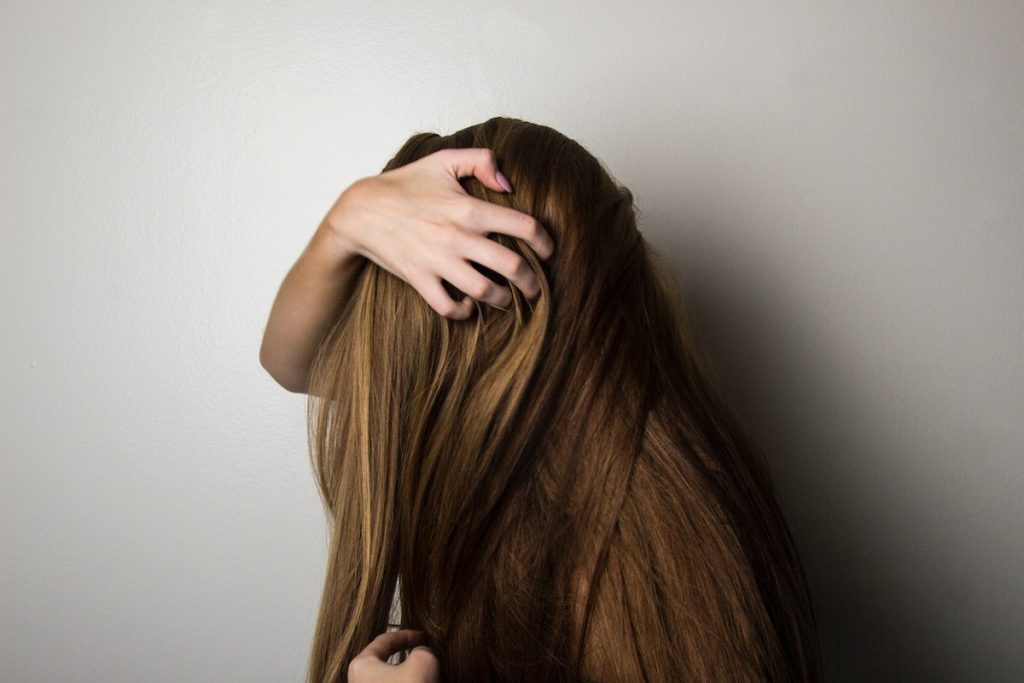Hair thinning can be one of the most frustrating and confidence-shaking experiences for women. It often starts subtly—less volume, a looser ponytail, or more hair on the pillow. Before long, it begins to affect how you feel about yourself.
For many women with PCOS hair loss, these changes can appear without warning and worsen over time. While every experience is different, the emotional impact is often the same: a growing sense that something deeper is happening within your body. Recognising the signs early and seeking expert support can make all the difference in protecting your hair and restoring its natural strength.
What Is PCOS and How Does It Affect Your Hair?
Polycystic Ovary Syndrome (PCOS) is a hormonal disorder that affects how the ovaries function. It causes an imbalance in reproductive hormones. In most cases, it is an excess of androgens, which are commonly referred to as “male hormones.” While women naturally produce androgens, higher levels can interfere with ovulation, trigger acne, and most notably, affect hair growth.
When androgen levels rise, they can cause the hair follicles on the scalp to shrink in a process called miniaturisation. This leads to finer, weaker hair that grows more slowly and falls out more easily. For many women, this results in female pattern hair loss, where the crown and frontal scalp become noticeably thinner.
Interestingly, while PCOS can cause thinning on the scalp, it can also lead to excess hair growth (hirsutism) in other areas, such as the face or body. These opposite symptoms—thinning in some areas and thick growth in others—reflect just how powerfully hormones influence the body’s hair growth patterns.

Why Does PCOS Hair Loss Happen?
One key factor behind PCOS hair loss is the way the body processes hormones. The enzyme 5-alpha-reductase converts testosterone into dihydrotestosterone (DHT), a more potent form that can bind to receptors in androgen-sensitive hair follicles. Over time, this interaction can shorten the hair growth cycle and cause follicles to produce finer, weaker strands.
Beyond this hormonal pathway, insulin resistance is also thought to play a role. Higher insulin levels can stimulate the ovaries to produce more androgens while lowering levels of sex hormone-binding globulin (SHBG). As a result, the amount of free hormones circulating in the body increases. These changes can intensify the effects of DHT on the scalp and lead to continued thinning.
Other contributing factors may include:
- Chronic inflammation, which can affect scalp and follicle health.
- Genetic predisposition, influencing how sensitive your follicles are to hormonal changes.
- Stress, which may disrupt hormone balance and accelerate shedding.
In essence, PCOS hair loss reflects the body’s internal imbalance. Managing it effectively means addressing both the hormonal triggers and the overall health of the scalp.
How to Tell If Your Hair Loss Is Caused by PCOS
Not all hair loss is hormonal, so identifying the root cause is crucial. PCOS hair loss typically appears as gradual thinning at the crown, temples, or parting line rather than sudden patches. You might notice:
- More hair collecting in your shower drain or hairbrush.
- Increased visibility of the scalp under bright light.
- Slower hair growth despite good care routines.
However, other conditions can mimic these symptoms, including thyroid disorders, iron deficiency, and stress-related shedding (telogen effluvium). That’s why a professional diagnosis is key.
A trichologist or hair specialist can perform blood tests to check hormone and nutrient levels, and a scalp analysis to evaluate follicle activity. In Ireland, hair and scalp specialists often use advanced diagnostic tools to determine whether your thinning is related to PCOS or another underlying issue.

What Are the Effective Treatments for PCOS Hair Loss?
There’s no single solution for PCOS hair loss. However, a combination of medical treatment, scalp care, and lifestyle support can significantly improve results. Early intervention and consistency are essential to restore balance and encourage regrowth.
Medical and Prescription Options
Many women benefit from treatments that address hormonal imbalances directly. These may include hormone-regulating therapies and anti-androgen approaches prescribed by a qualified healthcare professional. Such treatments can help reduce the effects of excess hormones on the scalp, allowing hair follicles to recover and grow more effectively.
Your doctor will determine the best course of action based on your overall health, medical history, and hormone levels. It’s important to follow professional advice closely, as these treatments require careful monitoring and may take several months to show visible results. Consistency and patience are key to long-term improvement.
Topical and Professional Scalp Treatments
In addition to internal treatments, topical hair loss therapies can target the scalp directly. DHT-blocking serums, peptide-based solutions, and specialist shampoos that soothe inflammation and restore scalp balance are commonly used to support regrowth.
Clinics such as Universal Hair Clinic in Dublin often combine these topical treatments with advanced therapies like low-level laser therapy or microneedling. These procedures stimulate circulation and improve the absorption of growth-promoting products.
Professional scalp assessments also ensure that any secondary issues, such as seborrhoeic dermatitis or product buildup, are treated effectively as these can hinder results. A tailored treatment plan created by a specialist offers a balanced approach that goes beyond what over-the-counter products can achieve.
Lifestyle and Nutritional Support
Hair health is closely tied to overall wellbeing, and for women with PCOS, diet and lifestyle play a vital role.
Balanced Diet: Focus on whole foods, lean proteins, vegetables, and healthy fats. Reducing processed sugars can help regulate insulin levels.
Key Nutrients: Iron, zinc, vitamin D, omega-3 fatty acids, and biotin all contribute to strong, healthy hair.
Stress Management: Chronic stress increases cortisol, which can worsen hormonal imbalance. Techniques like yoga, mindfulness, or therapy can make a real difference.
Regular Exercise: Helps improve insulin sensitivity and hormone regulation.
While lifestyle changes alone won’t reverse PCOS hair loss, they enhance the effectiveness of medical and professional treatments. Together, they create a foundation for lasting improvement.
When to Seek Professional Hair Loss Consultation
If you’ve tried home remedies or over-the-counter products without improvement, it may be time to consult a specialist. Early diagnosis can significantly slow or even reverse PCOS hair loss before follicles become permanently inactive.
You should seek professional help if you notice:
- Rapid or ongoing thinning that lasts longer than six months.
- A widening parting line or patchy areas on the crown.
- Itching, flaking, or scalp inflammation.
- Minimal results from routine treatments.
A professional evaluation ensures that you receive targeted care tailored to your specific hormonal and scalp condition. Specialists in female hair loss combine scientific expertise with customised treatment plans designed to promote long-term scalp and hair health.

In conclusion, living with PCOS hair loss can feel frustrating. But it’s important to remember that effective solutions exist. By understanding the connection between hormones and hair, you can make informed choices that support both your scalp and overall well-being.
From hormonal therapies to advanced scalp treatments and nutritional support, addressing PCOS hair loss is a multi-step journey but one that leads to renewed confidence and healthier growth. The sooner you take action, the better your chances of protecting and revitalising your hair.
Are you struggling with PCOS hair loss and unsure where to start? A professional scalp assessment and personalised plan can help restore balance and healthier growth. Call us on +353 (0)1 679 3618 now to book your consultation and take the first step towards renewed confidence.



